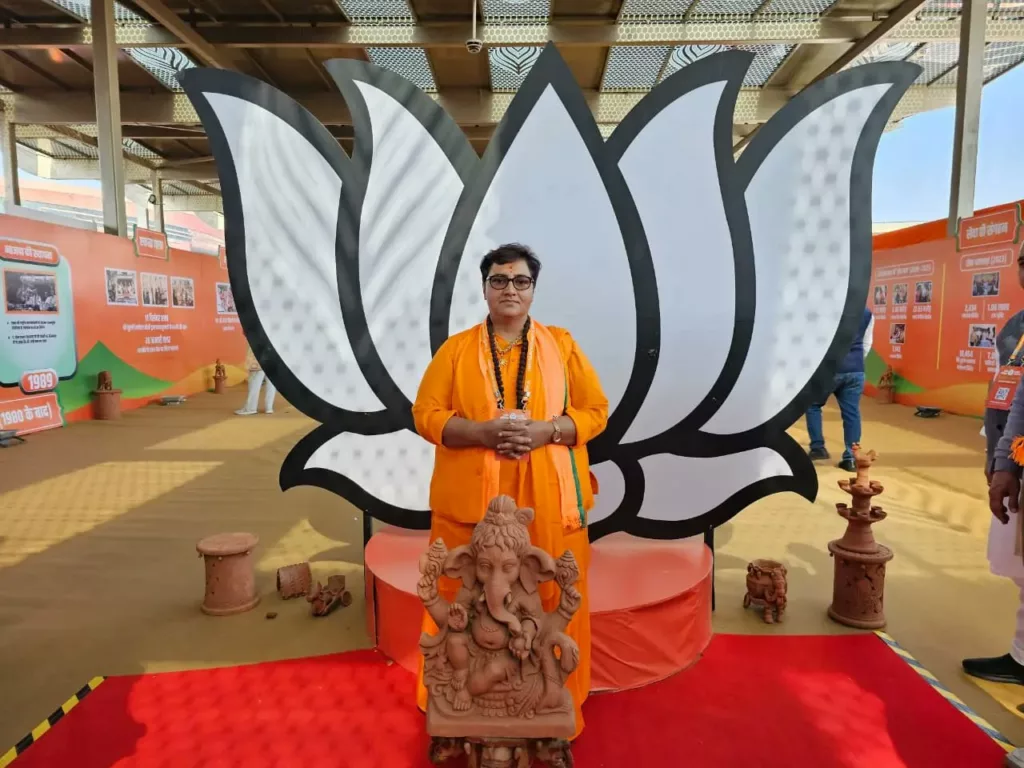Seventeen years after a deadly bomb blast shook Malegaon in Maharashtra, a special court in Mumbai has acquitted all seven accused in the case, including former BJP Member of Parliament Pragya Singh Thakur and Lieutenant Colonel Prasad Purohit.

The verdict was delivered by Special Judge AK Lahoti of the National Investigation Agency (NIA) court, who ruled that the prosecution had failed to prove the charges against the accused and that they deserved the benefit of doubt.
The court stated that the provisions of the Unlawful Activities (Prevention) Act were not applicable in this case. The judge also noted that the prosecution was unable to establish that the motorcycle allegedly used in the blast belonged to Pragya Singh Thakur.
The court observed that she had turned into a sannyasi two years before the incident and had renounced material possessions prior to the explosion.
भगवा चिर विजयी ध्वज…. pic.twitter.com/W0Cw7Wu1j0
— Sadhvi Pragya Singh Thakur (@sadhvipragyag) July 31, 2025
It was also held that there was no evidence of any conspiracy among the accused persons. The court said the prosecution could not prove that a group called Abhinav Bharat, said to have been founded by Pragya Thakur and Col.
Purohit, had raised funds that were used to carry out the blast. Further, the court found no evidence that Col. Purohit had procured RDX from Kashmir or assembled the bomb at his residence.
The Malegaon blast took place on 29 September 2008, killing 10 people and injuring more than 100 others. The initial investigation was carried out by the Azad Nagar police station and later taken over by the Maharashtra Anti-Terrorism Squad in November 2008.
The ATS added charges under the Maharashtra Control of Organised Crime Act. The first chargesheet was filed in January 2009, followed by a supplementary chargesheet in April 2011.
I'm extremely grateful to Indian Army, the country & those who stood by us. I am grateful to judiciary for understanding the case & delivering justice to all of us,' says Lt Col Prasad Shrikant Purohit #MalegaonBlast #MalegaonVerdict #NIACourt pic.twitter.com/2xgHQkYpgh
— Kedar (@Kedar_speaks88) July 31, 2025
In April 2011, the Ministry of Home Affairs directed the National Investigation Agency to take over the case. The NIA filed a second supplementary chargesheet in May 2016, dropping MCOCA charges against all seven accused. In December 2017, the special court removed MCOCA charges and charged the accused under various sections of the Indian Penal Code, the Arms Act, the Explosive Substances Act, and the UAPA. All seven accused were on bail during the course of the trial.
Meanwhile, the verdict of the trial court in the 2008 Malegaon blast was unacceptable and he will move even the Supreme Court to get justice if necessary, said the father of Farheen (10), the youngest victim of the tragedy, on Thursday, July 31.
“The court’s judgement is wrong. We will go to the Supreme Court to seek justice,” said 67-year-old Liyaqat Shaikh, showing a photograph of his daughter as he spoke to the media in Malegaon town of north Maharashtra.
Recalling the incident, Shaikh, who then worked as a driver, said Farheen had left house to buy `vada-pav’ (a snack) at Bhikku Chowk on the evening of September 29, 2008.
“I heard the sound of a blast. We lived near the blast site, in a tin-roof house. Splinters were found on the roof of our house afterwards. I went to look for my daughter but could not find her. It was dark outside. Somebody said there was a girl among the injured. My wife and I ran to the hospital, where we found her in a bad situation,” he said.
Six persons including Liyaqat Shaikh’s daughter were killed and 101 injured in the blast.
Nisar Ahmed, whose son Sayyed Azhar was one of those who died, said they did not get justice and will approach higher courts. Victims of any blast, whichever religion they may belong to, should get justice, he said.
Usman Khan, whose nephew Irfan Khan (22) died in the blast, said Irfan drove an auto rickshaw and had gone out to have tea at Bhikku Chowk when the blast ripped through the place.
“First we took him to a local hospital, from there we took him to Nashik,” he said, adding the doctors at the Nashik hospital asked them to take him to Mumbai.
He was shifted to the government-run J J Hospital in Mumbai but died after 10 hours of treatment, Khan said.
He was not happy with the verdict, he said. “First some Muslims were arrested in the case, and they got a clean chit later. Now these people too were not convicted, so who was the culprit?” he asked.
The victim families would file an independent appeal against the judgement, said advocate Shahid Nadeem who represented some of them.
(With inputs from the Press Trust of India)


